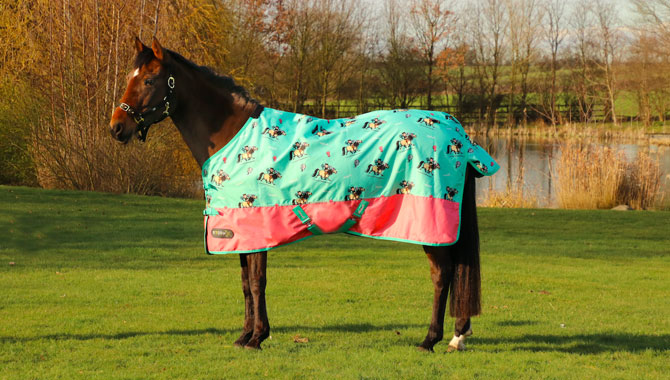—-
To stay in the loop with the latest features, news and interviews from the creative community around licensing, sign up to our weekly newsletter here

Start Licensing’s Ian Downes looks at how a partnership between Hy Equestrian and art brand Thelwell highlights the benefits of embracing specialist markets.
One of the constant challenges faced by rightsholders and agents in the licensing market is finding a home for their rights. Supply of rights outstrips demand, especially in traditional licensing areas such as apparel and toys. Existing licensees find it challenging to make room for new rights, while retailers have a finite amount of shelf space available.
It’s also a common observation that retailers are seeking to reduce the number of suppliers they are working with. Of course, in recent times e-commerce has opened up new opportunities and there has certainly been an upsurge in licensed product sales online. That said, getting traction with licensees and retailers is still a real challenge.
Bearing this in mind, I am always impressed when I see a licensed brand being developed in a category that is licensing-lite and in a market sector that seems the perfect fit for a particular brand. A great example of a brand being well placed and developed is the art brand Thelwell and their work in the equestrian sector. It’s licensing’s version of horses for courses!
Norman Thelwell was an artist and illustrator who developed his professional career initially through working for Punch magazine. As his official website points out, that was the starting point for the art and artwork style that he became famous for…
‘His first cartoon for Punch was published in 1952 and led to a relationship which lasted for 25 years and over 1,500 cartoons, including 60 front covers. His first pony cartoon was published in 1953 and, by accident, led to a lifetime of association with the image of the little girl and the fat hairy pony.’
Thelwell says in his autobiography that he was ‘a sort of unofficial country cartoonist, doing funny drawings that involved birds, cattle, pigs and poultry.’ He developed a distinctive art style that became recognised and effectively became a brand.
His work and subject matter extended beyond horses and ponies but always retained a strong connection to the countryside. From a licensing point of view, the Thelwell name and brand has a strong resonance within the equestrian world and has a strong sense of heritage within that community.
A love and familiarity with Thelwell and his work has passed through generations, so it makes sense that a priority area for licensing are products associated with the equestrian world. From a practical point of view there is likely to be a warmer reception from potential partners in this space, higher brand recognition and, importantly, less direct competition.
Thelwell have been working with Hy Equestrian since last Autumn. Hy Equestrian are a specialist manufacturer and have developed a range of Thelwell-branded horse rugs and other horse related products – including saddle pads, fly veils, headcollars and grooming kits. The range also extends into equestrian apparel for riders such as gloves, socks, hat covers and boot bags. Based on the initial success of the range, additional designs have been added to the collection.

This is a great example of a licensing partnership that has been nurtured and is developing further momentum based on sales success. A key point to note in this kind of partnership is the value of developing appropriate products in a specialist marketplace that will be receptive to the licensed brand.
My sense is that equestrian consumers have warmed to the partnership as they see it as an appropriate one and a good fit for their world. It’s authentic and credible. Equally, the licensee is a company that they know and respect, as Hy Equestrian is a trusted player in the market. This is worth noting as a successful licensing partnership needs a capable, motivated and qualified licensee, especially within a specialist category.

Consumers may find a product attractive from a design point of view but when it’s a practical product, they want to be reassured about its durability and its suitability. These kinds of products are considered purchases and consumers want to know the product can be relied on.
It’s good to see licensing partnerships like this one flourishing as it should encourage us all in licensing to think more about new business and how a brand can have a positive impact in a category.
Matching a licence to a licensee in a specialist category is a noteworthy skillset but it’s also one that can be very rewarding. Perhaps we all have to work harder at finding new markets for brands to work in. With the growth in e-commerce, there should be new opportunities to target consumers more efficiently with thematic collections centred on specific interests and hobbies.
It’s great to see a classic art brand like Thelwell enjoying licensing success and that Thelwell’s artwork is still entertaining people so many years after it was first produced. This underpins the licensing value in art and illustration archives, particularly one that resonates with a lifestyle sector like the equestrian space.
Enter your details to receive Brands Untapped updates & news.